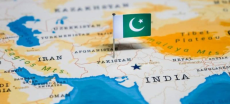Illicit Cigarette Trade Costs Pakistan Rs415 Billion Annually, Overshadowing Legal Sector’s Contribution
Pakistan’s formal tobacco sector, which contributes approximately Rs270 billion in taxes annually, now controls only 46% of the market. The remaining share is dominated by untaxed and unregulated cigarette brands, whose growth has surged amid weak regulatory enforcement.
Estimates suggest that the illegal cigarette trade is draining the national economy of Rs415 billion each year—nearly double the tax contribution of the formal industry. This revenue loss not only undermines economic stability but also restricts government spending on critical sectors such as healthcare, education, and infrastructure.
Read More https://theneutral.pk/pakistan-should-form-strategic-bloc-with-afghanistan-china-and-bangladesh-dar/
The expanding illicit market has sparked concern over the role of international non-governmental organizations (INGOs), such as Campaign for Tobacco-Free Kids and Vital Strategies, which critics say focused exclusively on regulated tobacco companies while ignoring the rise of illegal brands. Authorities have since suspended the operations of several INGOs, citing significant legal and regulatory violations.
What was once framed as public health advocacy is now being viewed by some experts as a smokescreen for regulatory disruption, with INGOs accused of enabling tax evasion by failing to address the real source of the problem.
The International Monetary Fund (IMF), which continues to urge Pakistan to broaden its tax base and implement stronger fiscal measures, is also facing pressure to account for the economic impact of unchecked illicit markets. Analysts argue that without a crackdown on illegal cigarette sales, Pakistan risks falling short of IMF-backed reform targets.
“This is no longer just a tobacco issue—it’s a matter of national economic survival,” said Fawad Khan, spokesperson for Mustehkam Pakistan. “Illicit trade is draining the country’s resources and rewarding lawbreakers, while penalizing those who operate within the law. The silence around this issue is not accidental—it’s strategic.”
Policymakers are now calling for urgent action, including stricter enforcement and policies that level the playing field between legal and illegal market players. Experts warn that the longer the imbalance persists, the more difficult it will be to reclaim lost ground











